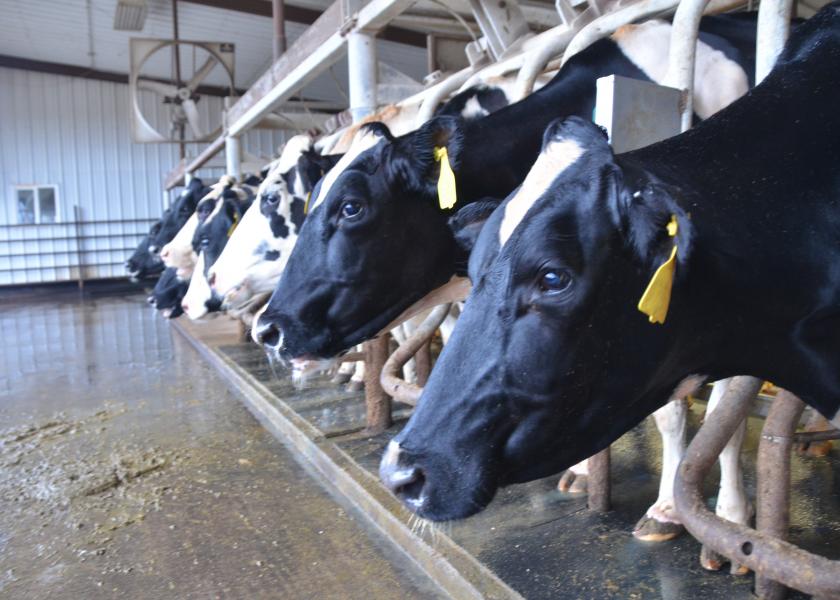Don’t Let Spring Cause Your Somatic Cell Count to Spike

April showers bring May flowers, but it can also bringmastitis and a sudden increase in somatic cell count (SCC) levels.
Wet weather and warmer temperatures provide the perfect opportunity for bacteria to breed and wreak havoc on milk quality. In order to stay ahead of a springtime spike, producers should focus on cow comfort, cow cleanliness and precise milking protocols.
Cow Comfort – Keep bedding clean and dry! During wet weather, take extra time to focus on stall management. Rake away any wet organic material or manure and replace with fresh bedding. Deep bedding replaced less often is worse than more-shallow bedding that producers replace daily.
Producers who use recycled manure solids or bedded packs as bedding must take extra precautions during wet weather by removing solid bedding often.For animals let out on pasture, provide a dry area for cows to come lie down. Use your best judgement when the weather gets soggy. If pastures are too muddy, leave animals indoors.
Cow Cleanliness – When cows enter the parlor, conduct a quick survey on animal cleanliness. Are their udders dry and manure free? Be thorough when wiping away dirt and bedding debris before milking and focus on forestripping.
While it’s tempting to forego forestripping in your milking routine to save time and effort, forestripping offers multiple benefits to the cow and, ultimately, to your bottom line. Strip at least three to five streams of milk to help lower SCC levels and monitor mastitis prevalence.
Milking Protocols- Before attaching the milking unit, be sure to leave pre-milking teat dip on for a minimum of 20 seconds. Clean, dry, cloth towels laundered daily are the teat-end cleaning tools of choice when milking.Take time to dip all teats with a postmilking dip as soon as possible after milking. Have at least two-thirds or more of the complete teat covered with postmilking teat dip.
It is also important to keep all milking equipment in good working order. Develop a routine performance check and maintenance program to keep your parlor in check. Replace rubber parts at recommended intervals and be sure system cleaning is done consistently and properly.
For more on controlling somatic cell counts, read:
- 15 Ways to Reduce Somatic Cell Counts
- Weather Impacts Somatic Cell Counts
- 200,000 Somatic Cell Count Isn’t Good Enough







